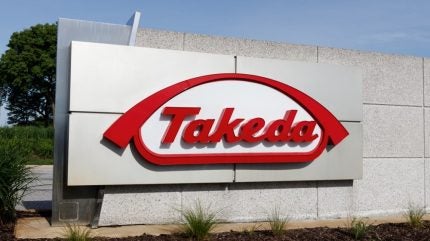
Japanese pharma company Takeda has signed an exclusive, worldwide option and licence agreement for AC Immune’s amyloid beta-targeting Alzheimer’s disease (AD) immunotherapy, in a deal worth up to $2.2bn.
As per the agreement, AC Immune will receive $100m in upfront payment and will be in line to receive up to $2.1bn in milestone-based payments. The Swiss pharma company will also be eligible to receive “tiered double-digit royalties” should Takeda choose to license the therapy following the completion of the Phase II trial.

Discover B2B Marketing That Performs
Combine business intelligence and editorial excellence to reach engaged professionals across 36 leading media platforms.
Following the news, AC Immune’s stock was up by more than 57% in premarket trading today, compared to the market close on Friday. The company’s market cap stands at $228.5m.
ACI-24.060 targets the toxic forms of amyloid beta protein, which are involved in the pathogenesis of AD. The therapy is designed to induce an antibody response against those amyloid beta versions thereby disrupting plaque formation and disease progression in AD.
AC Immune is evaluating the amyloid beta-targeting immunotherapy in a placebo-controlled Phase Ib/II ABATE trial (NCT05462106) as a treatment for early AD, and the genetic disorder Down syndrome, which is caused due to an extra copy of a chromosome. The company will also be responsible for completing the ABATE trial.
Following its completion, Takeda will have the option to conduct and fund further clinical development. The Japanese company will also bear all global regulatory and commercialisation responsibilities.

US Tariffs are shifting - will you react or anticipate?
Don’t let policy changes catch you off guard. Stay proactive with real-time data and expert analysis.
By GlobalDataIn August 2023, Takeda suffered a setback when it terminated the development of its own AD therapy, DNL919 (TAK-920), which was developed in collaboration with Denali Therapeutics. The clinical programme was discontinued due to safety concerns seen in the healthy volunteers who were a part of the Phase I trial (NCT05450549). At the time, Denali said the “safety signals of moderate, reversible haematologic effects” would suggest that the therapy is likely to have a “narrow therapeutic window”.
AC Immune has also partnered with Johnson & Johnson (J&J) to develop an AD therapy dubbed ACI-35.030 (JNJ-64042056). In December 2023, AC Immune announced that J&J plans to start a “potentially registration-enabling”, placebo-controlled Phase IIb ReTain trial evaluating the therapy in preclinical AD patients. The study will enrol approximately 500 patients. The study’s primary endpoint evaluates the participant’s cognitive decline, assessed using the preclinical AD cognitive composite 5 (PACC-5) score.




